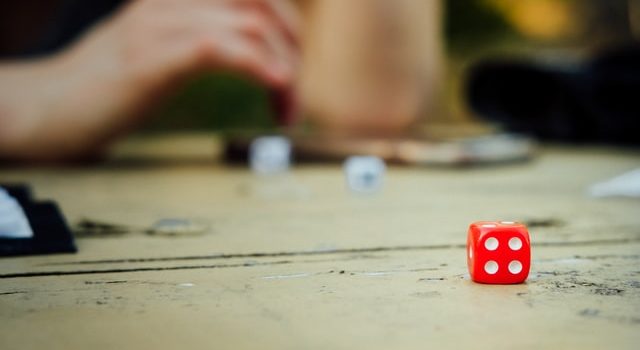

This article is an excerpt from the Shortform book guide to "Skin in the Game" by Nassim Nicholas Taleb. Shortform has the world's best summaries and analyses of books you should be reading.
Like this article? Sign up for a free trial here .
How does Nassim Taleb define “skin in the game”? How do you know whether you have your skin in the game?
Someone who has their “skin in the game” has a vested interest in the outcome of an event and, more importantly, has something to lose. Essentially, Taleb equates skin in the game to risk. The more you have to lose, the more skin you have in the game.
In this article, we’ll go over some broad principles that are key to understanding Nassim Taleb’s skin in the game philosophy.
Principles of Skin in the Game
According to Nassim Taleb, skin in the game is characterized by four principles:
- Principle #1: If You Don’t Have Skin in the Game, You Shouldn’t Be Involved
- Principle #2: Time and Distance Remove Skin from the Game
- Principle #3: Some People Put More than Skin in the Game
- Principle #4: Skin in the Game is the Heart of Law and Ethics
Principle #1: If You Don’t Have Skin in the Game, You Shouldn’t Be Involved
A central tenet of Taleb’s argument is that people with no skin in the game have no business being involved. Even if people believe they have the knowledge or skills to help someone, if they have no skin in the game, they should mind their own business.
In the book, Taleb criticizes the United States’ 2003 intervention in Iraq. They had no skin in the game, so the negative consequences of their actions had little impact on them.
| Iatrogenics in Iraq This falls within the topic of “iatrogenics”—when well-intentioned intervention causes more harm than good. This is one of Taleb’s major ideas, recurring throughout the Incerto. Some would argue that the US did have skin in the game. The Iraq War came at devastating cost to the United States, and overturning the government of Saddam Hussein did little to bring peace to Iraq. However, one reason things turned out poorly is the fact that the United States didn’t have their skin in the right game. Despite the fact that the US sacrificed thousands of soldiers’ lives and billions of dollars to fight in Iraq, none of their losses were directly linked to the goal of peace in Iraq, so it didn’t happen. Taleb compares the situation to a doctor who injects a patient with cancer cells in order to lower his cholesterol. The patient dies, but his cholesterol levels look great. The goals of the war were imperfectly linked to the goals of the Iraqi people. It would be impossible to implement skin in the game in a situation like this, which is why Taleb for the most part opposes foreign intervention altogether. |
Principle #2: Time and Distance Remove Skin From the Game
The farther away someone is from the consequences of their actions, the less skin she has in the game. A grandmother will be more invested in the happiness of her grandchild if she lives in the same house than if she lives in another country.
Likewise, the longer it takes for the consequences of someone’s actions to surface, the less skin she has in the game. As time passes, it becomes more difficult to attribute effects to their causes. A doctor prescribing a drug that causes cancer 20 years down the road will be held less accountable than a doctor who prescribes a drug that kills the patient instantly.
Time and distance reduce the benefits of skin in the game, hindering the ability to learn from mistakes, lessening the pressure to do good work, and encouraging more unethical behavior.
| Defensive Medicine: When Doctors Have Skin in the Wrong Game Another example of a skin-in-the-game misalignment, “defensive medicine” refers to the harmful practice of prescribing treatment with the intention of avoiding liability rather than doing what’s best for the patient. Unethical medical professionals do this by creating time and distance between treatment (or lack thereof) and its results. Taleb uses the example of a cardiologist prescribing statins to someone who doesn’t need them, which are harmless in the short term but have a chance of causing problems years down the road. This would be an example of “positive” defensive medicine, unnecessary treatment to avoid being blamed for doing nothing. “Negative” defensive medicine is the similarly neglectful practice of avoiding risky treatment that, if unsuccessful, would make doctors liable for malpractice, but overall would result in better chances for the patient. The consequences of skipping surgery are more difficult to pinpoint than a botched surgery because of time and distance between cause and effect. |
Principle #3: Some People Put More Than Skin in the Game
While people with skin in the game accept responsibility for their own actions, some people accept greater risk and/or reject greater rewards for the sake of helping others. They put their skin in other people’s games. As Taleb phrases it, these people have their “Soul in the Game.” For example, a songwriter breaks off her record deal because the label pressured her to write boring mainstream hits, sacrificing money and publicity to create better art.
These “artists,” as Taleb calls them, put more skin in the game than anyone. People of any profession can be artists. They gain the benefits of skin in the game in spades:
- They learn ravenously, becoming masters of their field.
- They’re engaged and fulfilled by taking risks and making sacrifices.
- They have the pride of ethical integrity, acting based on moral principles instead of the potential for reward.
We should all aspire to be artists and take risks for the sake of others.
| Putting Yourself on the Hook Seth Godin’s book The Practice: Shipping Creative Work is all about taking risks in order to help others and, in the process, reinventing yourself as a professional artist, no matter what profession you’re in. He further defines what it means to have your “Soul in the Game.” “Askıda ekmek” means “bread on the hook” in Turkish. In ancient times, customers at the local bakery would buy an extra loaf and tell the owner to put it “on the hook” for anyone in need to take, free of charge. Godin uses this as a metaphor throughout the book to describe how you should approach creative work—he urges you to put yourself on the hook. By spending your life channeling your attention and effort into work that might not succeed, or that might even embarrass you, you’re paying your entire life forward for those who need what you create. |
Principle #4: Skin in the Game Is the Heart of Law and Ethics
Taleb argues that the foundation of ethics is that everyone involved has equal skin in the game.
The Golden Rule to “treat others the way you want to be treated” is another way of phrasing this same idea—although Taleb prefers the Silver Rule: “Do not treat others the way you would not like them to treat you.” When in doubt, you shouldn’t presume to know what’s good for others better than they do—Principle #1 from above.
In short, your actions that benefit you should benefit others, and, more importantly, your actions that harm others should harm you. This is the definition of skin in the game and the definition of ethics.
All codified law, since its beginning, has been intended to enforce penalties for actions with negative consequences—implementing a certain degree of ethics into society and forcing people to put skin in the game.

———End of Preview———
Like what you just read? Read the rest of the world's best book summary and analysis of Nassim Nicholas Taleb's "Skin in the Game" at Shortform .
Here's what you'll find in our full Skin in the Game summary :
- Why having a vested interest is the single most important contributor to human progress
- How some institutions and industries were completely ruined by not being invested
- Why it's unethical for you to not have skin in the game







This book is an amazing read. I like and enjoy the skin in the game concept. Wewll done Nassim.